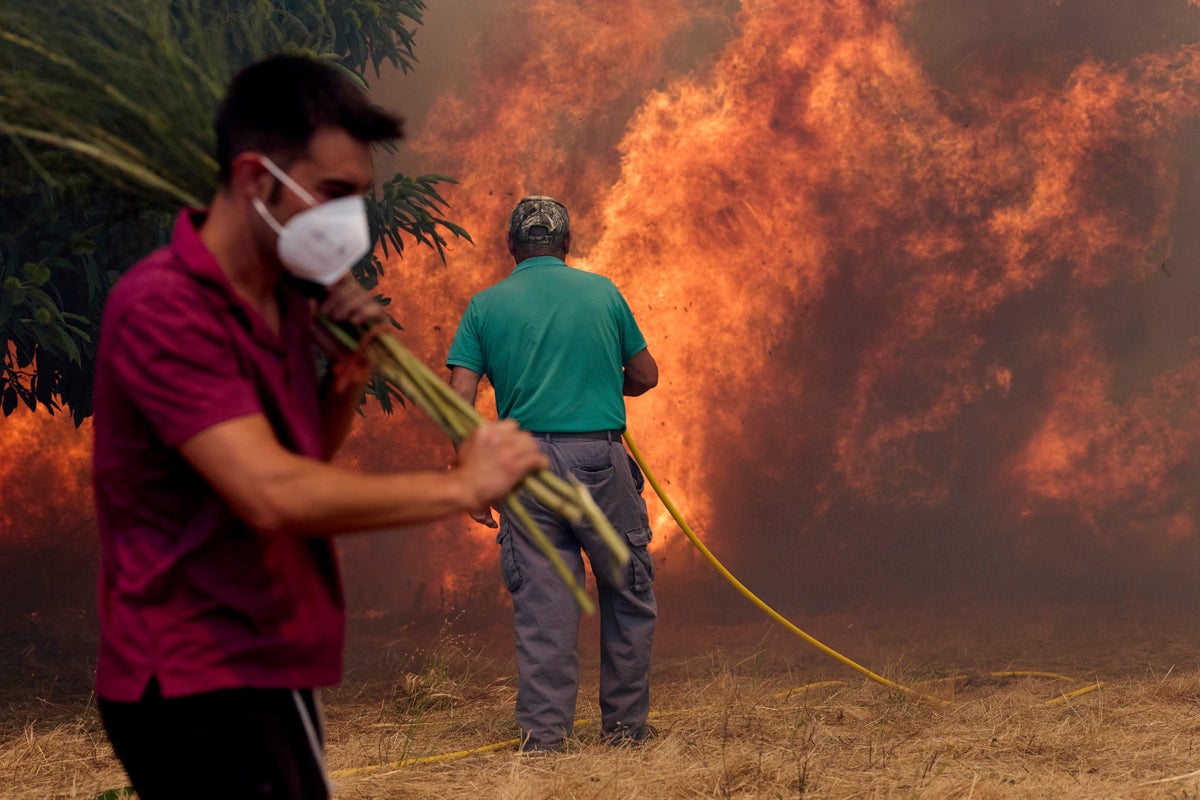Your support helps us to tell the story
From reproductive rights to climate change to Big Tech, The Independent is on the ground when the story is developing. Whether it’s investigating the financials of Elon Musk’s pro-Trump PAC or producing our latest documentary, ‘The A Word’, which shines a light on the American women fighting for reproductive rights, we know how important it is to parse out the facts from the messaging.
At such a critical moment in US history, we need reporters on the ground. Your donation allows us to keep sending journalists to speak to both sides of the story.
The Independent is trusted by Americans across the entire political spectrum. And unlike many other quality news outlets, we choose not to lock Americans out of our reporting and analysis with paywalls. We believe quality journalism should be available to everyone, paid for by those who can afford it.
Your support makes all the difference.Read more
Spain tackled several major wildfires on Tuesday in one of the country’s most destructive fire seasons in recent decades, despite temperatures dropping across the Iberian Peninsula.
Thousands of firefighters aided by soldiers and water-bombing aircraft continued to fight fires tearing through parched woodland that were especially severe in northwestern Spain, where the country’s weather agency AEMET reported a still “very high or extreme” fire risk — particularly in the Galicia region.
The fires in Galicia have ravaged small, sparsely populated towns, forcing locals in many cases to step in before firefighters arrive.
Firefighting units from Germany arrived in northern Spain on Tuesday to help fight the blazes, Spain’s Interior Ministry announced. More than 20 vehicles were deployed to help fight an ongoing blaze in Jarilla in the Extremadura region that borders Portugal, the ministry said.
Spanish Prime Minister Pedro Sánchez was expected to visit Jarilla later on Tuesday.
The fires in Spain, which have killed 4 people this year, have burned more than 382,000 hectares or about 1,475 square miles according to the European Union’s European Forest Fire Information System. That surface area is more than twice the size of metropolitan London.
Many fires have been triggered by human activity. Police have detained 23 people for suspected arson and are investigating 89 more, Spain’s Civil Guard said Tuesday.
In Portugal, more than 3,700 firefighters were tackling blazes, including 4 major ones in the north and center.
Wildfires there have burned about 235,000 hectares or 907 square miles, according to EFFIS — nearly 5 times more than the 2006-2024 average for this period. Two people there have died.
Europe has been warming twice as fast as the global average since the 1980s, according to the EU’s Copernicus Climate Change Service. Scientists say that climate change is exacerbating the frequency and intensity of heat and dryness in parts of Europe, making the region more vulnerable to wildfires.
